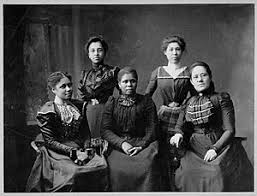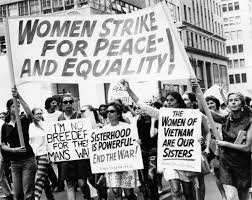Origin of Oppression
- anyabatra

- Jan 27, 2019
- 3 min read
Updated: Sep 21, 2020
Before you are misled by the title or are already predicting the nature of this article, hold on. This isn’t a blogpost written with a feminist agenda. I only write this with the hope that you, dear reader, can help me find some answers to the questions posed later in this missive.

Dear Reader,
Before you are misled by the title or are already predicting the nature of this article, hold on. This isn’t a blogpost written with a feminist agenda. I only write this with the hope that you, dear reader, can help me find some answers to the questions posed later in this missive.
The women’s rights movement expanding so rapidly, both in spread and intensity, has got me thinking. Why was there inequality in the first place? Throughout history we’ve seen that women were either politically or socially oppressed. Today it may seem like a no brainer to many people as to why women held this low political, social, legal or economic position in society. It may be an obvious answer as to why men would want to control women but the real question is how were men able to do this?
Even after reading several articles and blogs I, honestly, could not find a real cause or a conclusive theory to help me get an answer. Every treatise I read had an inherent loophole. The first such analysis I read was about men being physically stronger than women and thus carried the ability to control women. In my opinion, this is a simplistic notion and there is a fundamental flaw with this theory. Throughout history we have witnessed that physical strength rarely ever correlates with political or societal positions or hierarchies. In the political arena we almost always see people in their sixties or seventies preferred over people in their twenties or thirties. Clearly, physical strength has nothing to do with such selection. Social power depends on social ability. The ability to build alliances, the ability to make compromises and collaborate, the ability to understand what the other person is thinking either in order to make a deal or be aware of a trap, and so on. Intellectual prowess or strength far outweighs physical attributes or strength. Further, if we look at one of our closest relatives in nature, the bonobo chimpanzees, the male bonobos are significantly stronger than female bonobos but they have weaker networks than female bonobos. This probably helps explain why the bonobos are one of the few matriarchal societies.
And if I were to be provocative, according to Freudian psychology, women are better than men in matters of the intellect (and, extending this, societal skills). If this is true, that women have superior social skills, then it leaves us with the original question being unanswered – a riddle.
Another prominent theory deals with the fact that the differences of biology and anatomy were the root cause for oppression of women -- but this theory lacks clarity. Considering that women possessed the ability to bear children and thereby give life and sustain the continuity of mankind how were men able to dominate despite this hugely significant facet of female life? Possession of this ability made women biologically superior rather than the other way around. This theory also leaves us with the same unanswered question.
I also read somewhere that religion or beliefs, which mold society, has taught people that women are inferior. Most of these perceptions aren’t backed by evidence. They are merely social theories not scientific ones and to me a theory without any evidence is just a story.
There are several such stories and I may go as far as to calling it an industry that spews theories about the origin of the patriarchal system and of its compelling and long lasting status and, thereby, being the genesis of the oppression. To me this may be an outcome but it does not explain the “how”.
I think we are far from coming out with a scientific evidence based theory as to how men were initially able to oppress women, and even speculate whether at all it was men who were the initially oppressors.
Humans like to think of themselves as rational creatures, but much of the time we are guided by emotional and irrational thinking. Psychologists have shown this through the study of cognitive shortcuts known as heuristics. Similarly, most theories are influenced by some cultural irrationality or an emotional one. This has left me with one fundamental question. If men and women were initially equal and the only difference that arose was their division of labour, then how did division of labour lead to oppression?








Umm... I've got the answer to your question! Actually, it's this women being able to reproduce part that's landed them in this situation. See, back in the day, during the times when nomadic living prevailed, women actually had a respectable position in society. The tribes moved from place to place. Later, when property and an heir to inherit the property were needed, women were forbidden from having more than one Male partner. Men,however ,could have several female partners. To have children. Any difficulties during childbirth and pregnancy were blamed solely on women. Lack of knowledge of the science of it all, I think is also responsible for this. Women were then required to stay at home and tend to their…
The earliest form of the division of labour found in hunter gatherer societies was such that men worked on the land while the women worked at home. People were able to place a monetary value on the field work done by men (such as producing crops) but not on the work done by the women at home such as taking care of their family. The monetary value placed on the men’s work and not on the women’s work created a power dynamic between men and women. This power dynamic has said to have potentially led to the initiation of oppression against women.
Great work Anya! Your research and opinions shine bright enough to leave even those who are not feminists with a tingling thought to find answers.
Outstanding article. Want another or build up to this one